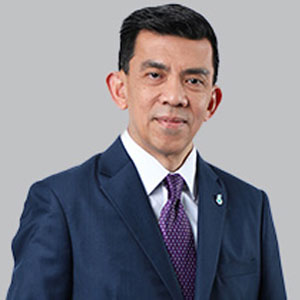- Home
- Magazines
- Manufacturers From Malaysia
- Ranking
- Petronas Chemicals Group
The petrochemical industry has been one of the significant sectors of the Malaysian industrial landscape. It has contributed much to economic growth and export revenues of the latter for quite some time. Several advantages automatically accrue to the industry, as it is a country endowed with natural resources in crude oil and natural gas, critical feedstock for the manufacture of petrochemicals. Having taken into consideration the strategic location and well-developed infrastructure, coupled with relevant government policies that were instrumental in giving impetus to industrial growth, Malaysia has built up a formidable petrochemical sector over time. From upstream to downstream, the country has been brought to the forefront in Southeast Asia's fully integrated petrochemical market. Its products will continue to play a critical role both in regional and international markets alike amid changing global demand.
One of the key players in the Malaysian petrochemical industry is the Petronas Chemical Group Berhad, which is a wholly-owned subsidiary of the Malaysian national oil and gas corporation called Petronas. Established in 1985, today, PCG has grown to be one of the largest integrated chemical producers in Southeast Asia. Product-wise, it provides diversified olefins and polyolefins, fertilizers, methanol, other basic chemicals, and related derivatives.
Optimized production processes
The operations of PCG are intimately connected with the wider oil and gas operations of Petronas, which extends an access to feedstocks and capability for production optimization processes. This integration helps PCG in stabilizing supply chains in service of its customers in the different markets. Although its primary production is based in Malaysia, the PCG also has a presence in other parts of Asia, thereby helping it to serve a diverse clientele.
Financially, PCG has been stable, having withstood fluctuations in the market through diversified streams of revenue from a set of different product segments. This will definitely avoid dependency on a single market or product line and related risks. Its logistical infrastructure further supports its ability in supply chain management.
PCG focuses on sustainability and technological innovation in its business model. The group has invested in research and development to find alternative feedstocks and to develop products that are compliant with environmental standards. All these efforts are driven by industry trends toward sustainability, impelled by both regulatory requirements and by market demand for greener products.
Strategic partnerships and acquisitions
Apart from its focus on sustainability, PCG is further expanding its product portfolio and market presence through strategic partnerships and acquisitions. This includes investments in downstream projects and specialty chemicals to capture a higher margin market segment. Consequently, the group will reduce its exposure to raw material price fluctuations and improve the relative market position by diversifying business activities in the value chain.
Like many petrochemical companies, PCG struggles with rising raw material prices and increasing environmental regulations. The continuous quest for operational efficiency, diversification in offerings, and adherence to sustainable practices would be the answer to these challenges.
Being one of the key players in Malaysia's petrochemical industry, which is a major linkage to its larger oil and gas operations, the company's focus on sustainability, innovation, and strategic expansion reflects the response towards changing global petrochemical market demand. Even though opportunities and challenges may arise in this sector, PCG seems well-placed to navigate its way through these complexities with this approach.



